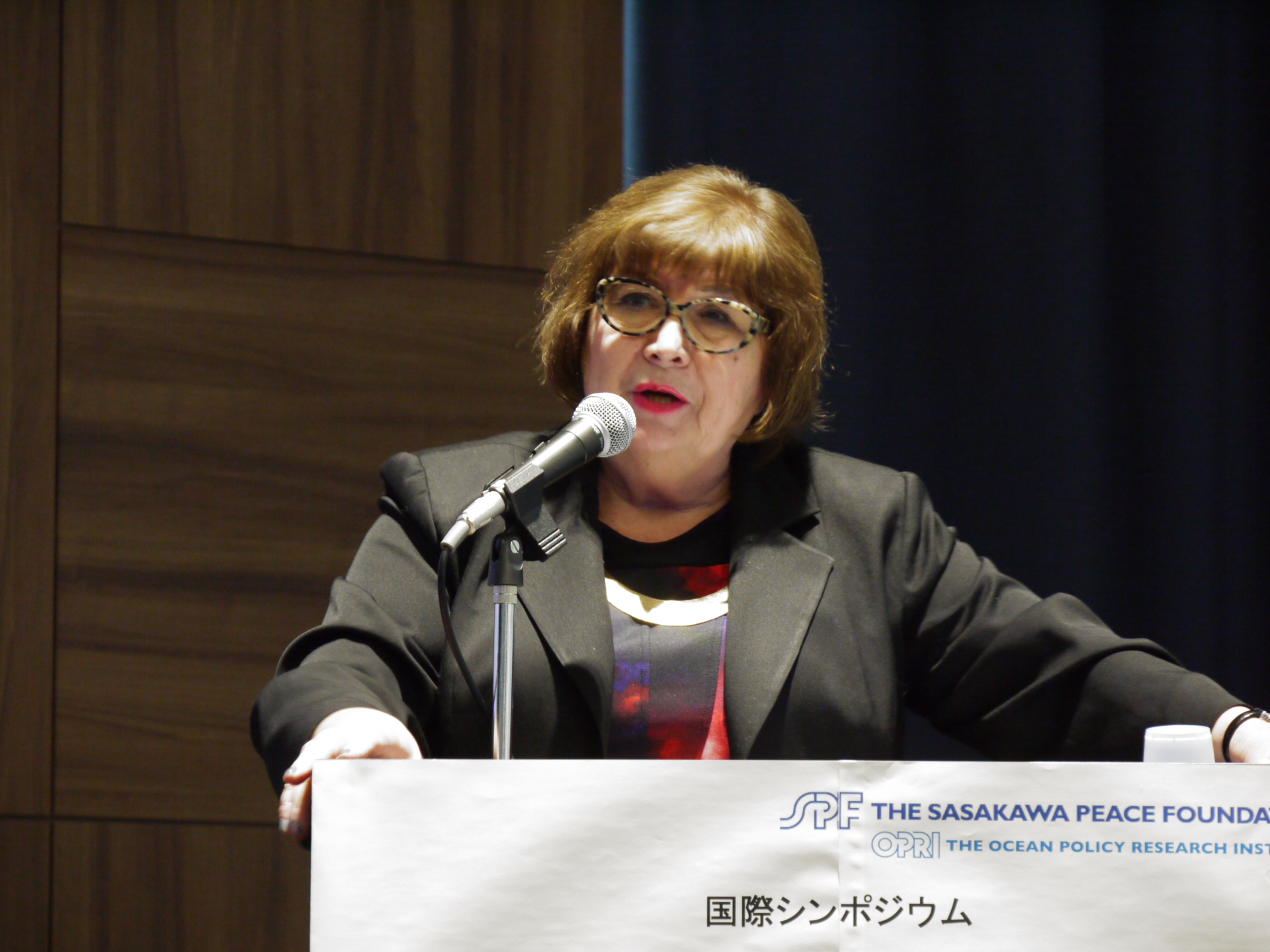Interview summary:
Q: At Oceans Day, a side event of Paris COP21, the "Draft Policy Recommendations on Oceans and Climate" were formatted and submitted.
A: COP21, where countries from around the world assembled and deliberated policies to address climate change and arrive at a consensus, was a key meeting in history. Along with other co-organizers, Ocean Policy Research Institute, the Sasakawa Peace Foundation formed an oceans network and was able to bring together international institutions and political leaders to formulate meaningful proposals. We had a big voice and together issued political statements that added provisions regarding oceans to a legally binding agreement.
Q: Sustainable Development Goal 14 set forth by the United Nations in the 2030 Agenda reads, "conserve and sustainably use the oceans, seas and marine resources for sustainable development."
A: It is very significant that there was a consensus among all nations on a global scale. However, initially, the people involved in the negotiations tended to only have a limited knowledge about oceans. So, it took a lot of work to have these people understand that oceans do not pose only environmental issues, but they are very important economically and socially. Half of the world's population lives in coastal zones or small island states, and all sorts of economic activity take place across and through oceans. The contribution of the oceans to the global economy is huge. Small island developing states, particularly the Pacific small island states, argued very strongly and pushed politically for a stand-alone goal on oceans.
Q: Crises related to climate change and the oceans are urgent matters to be confronted and it seems important for all of us to know more about the situation in order to effectively act and react. What is your opinion on this?
A: The small island states understand that, if climate change is not curbed, they are going to suffer very, very much. By and large, public understanding has changed tremendously in the last few years. Extensive scientific information has already been presented detailing projections and what the impact might be on oceans. I think that it is very important now to convey this information to the public. If the people know what might happen in the future, I think that they can then make choices to avoid such consequences. We have a responsibility to ensure a good future for our children and grandchildren.
